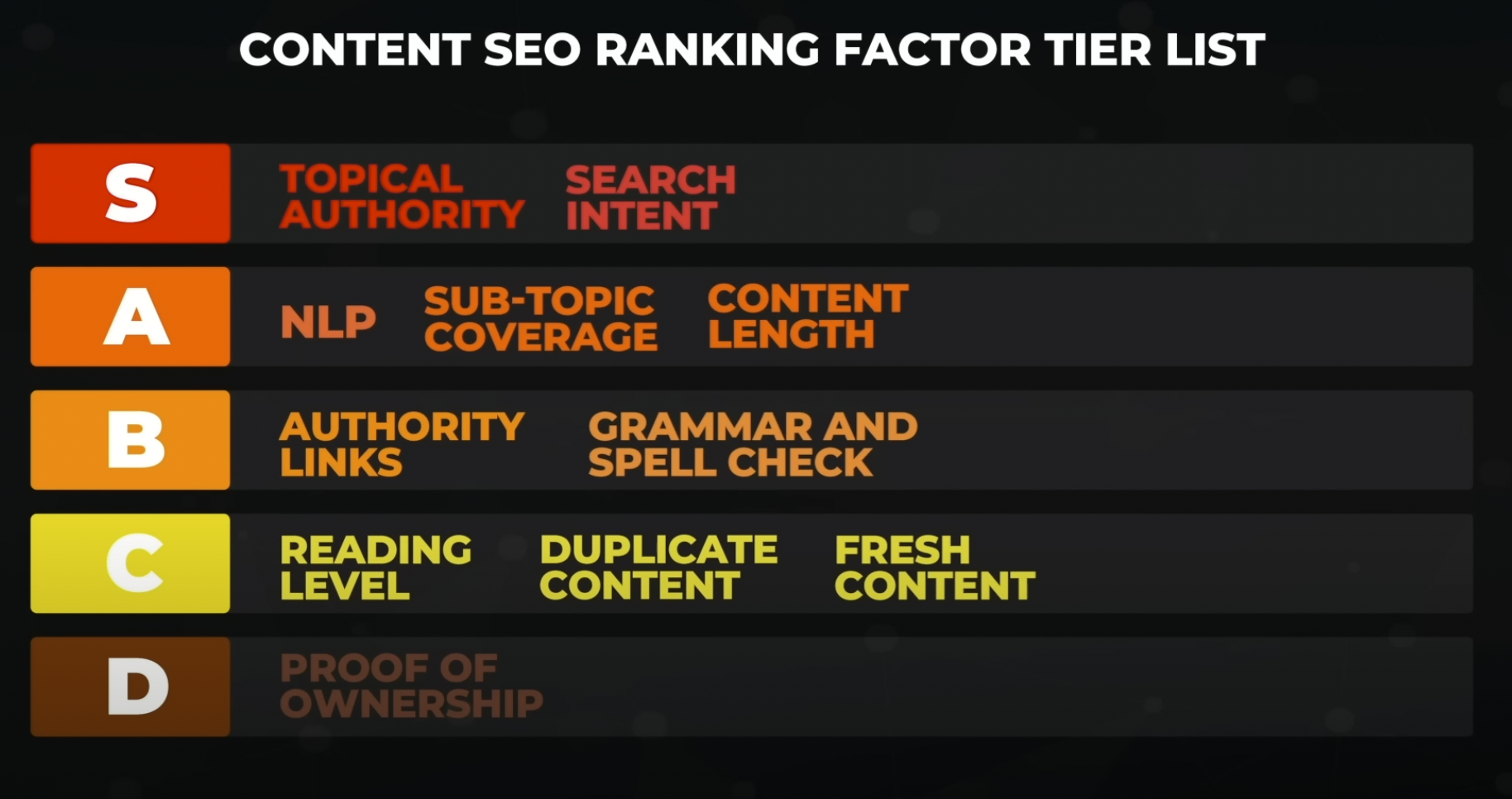In the vast realm of search engine optimization (SEO), understanding the key factors that influence search rankings is crucial for achieving online visibility and driving organic traffic.
While search algorithms continuously evolve, it is important to stay ahead of the curve by aligning your website’s content and structure with the most impactful ranking factors.
Here we look into the various tiers of SEO ranking factors, outlining their significance and impact on search rankings.
Tier 1: Topical Authority and Search Intent
At the pinnacle of SEO ranking factors are topical authority and search intent.
Topical authority refers to the depth of expertise and knowledge you possess in a specific niche or industry.
Demonstrating expertise through comprehensive, high-quality content establishes you as a credible source, leading to increased visibility in search results.
Additionally, aligning your content with the search intent of users ensures that your website provides the information or solution they are seeking.
Tier 2: Natural Language Processing (NLP), Sub-Topic Coverage, and Content Length
As search engines become more sophisticated, they strive to understand and interpret user queries more accurately.
Natural Language Processing (NLP) plays a vital role in this process.
Optimizing your content to align with NLP algorithms helps search engines comprehend the context and meaning of your content, improving its visibility.
Moreover, covering sub-topics related to your main topic signals search engines that your content provides a comprehensive resource, increasing the chances of ranking higher.
While there is no fixed word count for SEO, longer, well-researched articles tend to perform better, as they provide more in-depth information and have a higher chance of attracting backlinks.
Tier 3: Linking to Authoritative Pages, Grammar and Spell Check
Linking to authoritative sources within your content enhances its credibility and demonstrates a commitment to providing accurate and reliable information.
When you cite reputable websites, it improves your content’s value and trustworthiness in the eyes of both users and search engines.
Furthermore, maintaining high-quality standards in terms of grammar and spelling is crucial.
Poorly written content can be detrimental to user experience and may lead to a loss of trust. Regularly proofreading and editing your content ensures that it is error-free and enhances its readability.
Tier 4: Reading Level, Avoiding Duplicate Content, and Fresh Content
Crafting content that is easily understandable by a wide audience is essential for SEO success.
Ensuring that your content aligns with the reading level of your target audience helps engage users and improves user experience.
Tools such as the Flesch-Kincaid readability test can help assess the readability of your content and make necessary adjustments.
Duplicate content can harm your search rankings, as search engines prioritize unique and original content. Avoiding plagiarism and duplicating your own content across different pages or websites is crucial for maintaining a strong online presence.
Additionally, search engines value fresh and up-to-date content. This prevents old content from automatically ranking high because it’s acquired lots of backlinks but is ultimately outdated and/or could use improving.
Regularly updating your website with new articles, blog posts, or relevant updates signals to search engines that your website is active and provides users with the latest information.
Tier 5: Proof of Ownership of a Product for Review
While not a universal factor, providing proof of ownership when reviewing products can enhance the credibility and trustworthiness of your reviews.
This can be accomplished by including product images, videos, or detailed descriptions that illustrate your personal experience with the product.
Such proof can increase the likelihood of your content being viewed as valuable by both users and search engines.
Conclusion
Understanding the intricacies of SEO ranking factors and their hierarchical order is essential for optimizing your website’s content and structure.
By focusing on establishing topical authority, aligning with search intent, optimizing for NLP, producing comprehensive content, maintaining quality standards, and providing fresh, unique, and credible content, you can significantly enhance your website’s visibility and attract organic traffic.
Stay up to date with the latest trends and developments in SEO to continually refine and improve your optimization strategies.


